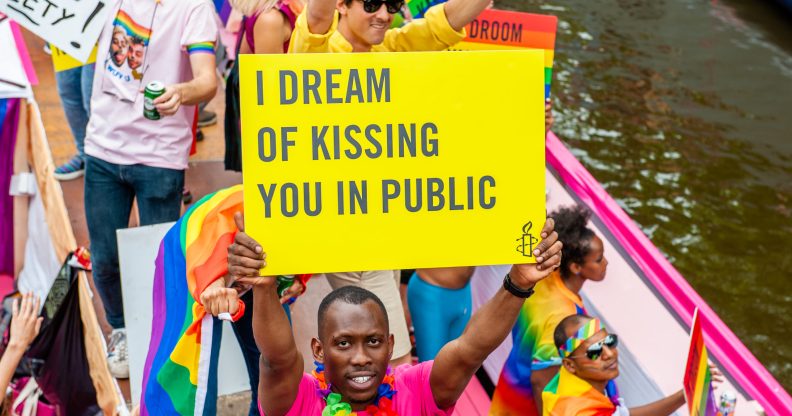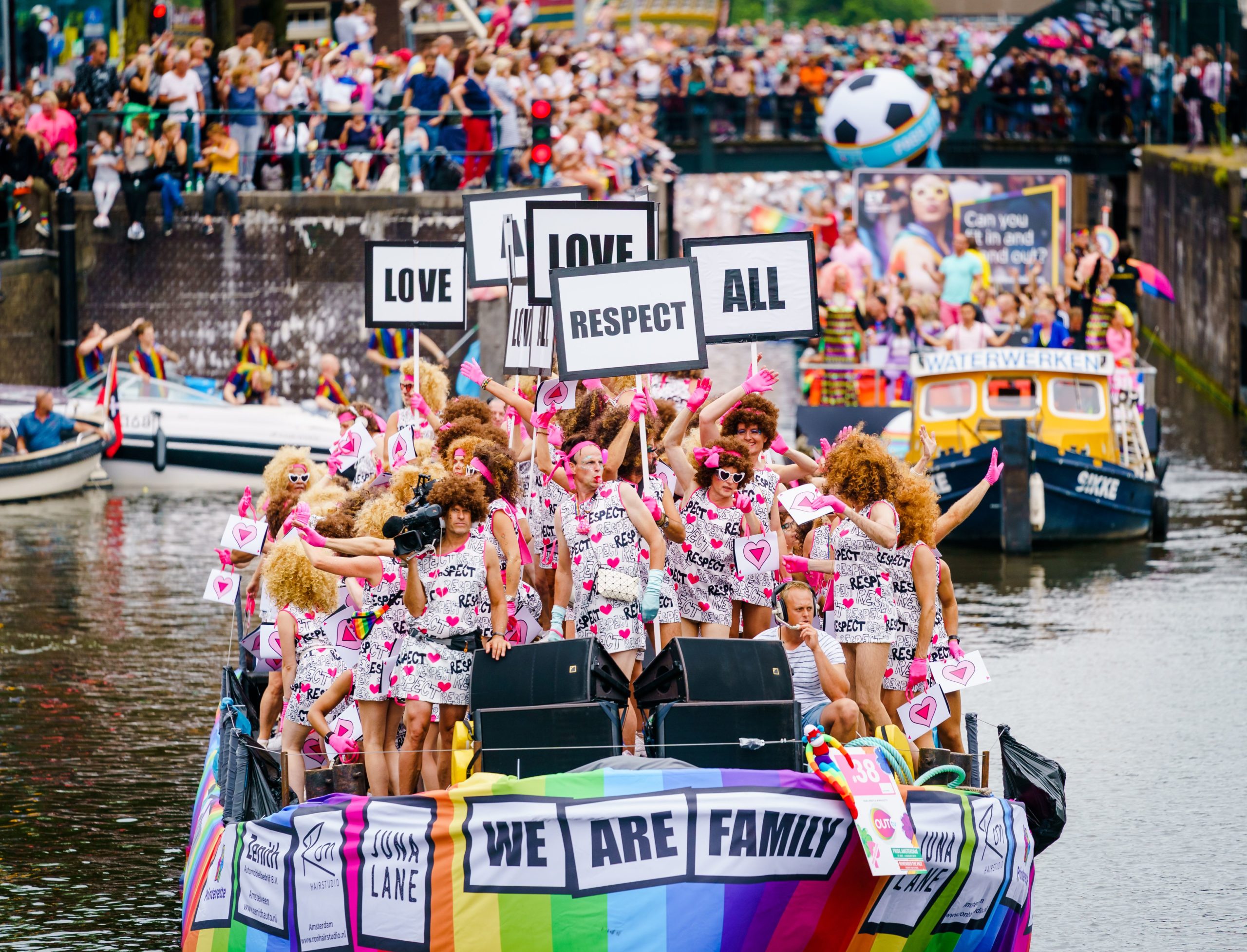The Netherlands just emphatically voted to put LGBT+ rights at the very forefront of the constitution

A black man holds a placard on the boat of Amnesty International during Amsterdam’s famous canal pride parade (Fernandez/SOPA Images/LightRocket via Getty Images)
Politicians in the Netherlands have voted to enshrine protections for LGBT+ people in the country’s constitution for the first time.
The Dutch House of Representatives voted by 124 to 26 in favour of a measure to amend the country’s constitution to add explicit protections based on sexual orientation.
Constitution of The Netherlands will safeguard LGBT+ rights
Article 1 of the Constitution currently states: “All persons in the Netherlands shall be treated equally in equal circumstances. Discrimination on the grounds of religion, belief, political opinion, race or sex or on any other grounds whatsoever shall not be
permitted.”
In the June 30 vote, lawmakers opted to add “sexual orientation” and “disability” to the list of protected characteristics – alongside assurances that gender characteristics, gender identity and gender expression are covered by existing sex and gender provisions.
Astrid Oosenbrug of Dutch LGBT+ group COC said: “This is wonderful news. Today we have taken a big step towards anchoring our rights in the Constitution.
“This is important for today, as a task for the politicians to tackle violence against LGBTI people. And it is important for the future, as a guarantee that we will still be able to enjoy our hard-won rights in 50 or 100 years” time.”

People take part in the annual Canal Parade in Amsterdam, the Netherlands (MARCO DE SWART/ANP/AFP via Getty Images)
The proposal will now head to the Dutch Senate, COC explained in a release – and will have to be ratified by a two-thirds majority after the March 2021 parliamentary elections before it comes into force.
COC explains it has been advocating “for almost 20 years” for LGBT+ rights to be anchored in the Constitution – with 2019’s Amsterdam Pride featuring with banners along the canal parade route calling for the change.
LGBT+ campaigners wanted to ‘guarantee’ rights for the future
An open letter published in August 2019 made clear: “As far as we are concerned, it is now high time to cement all our hard-won rights for the future. That’s why we call on government and parliament to anchor the rights of LGBTI persons in Article 1 of the Constitution.”
The letter called for a specific prohibition on discrimination as “a guarantee that laws and rights will be maintained in the long term,” continuing: “The social and political wind can turn. Minority rights that now seem self-evident may come under pressure.”
COC said that while current “social and political support for LGBTI rights in the Netherlands is great and there is no immediate reason to think that tomorrow will be completely different”, there is still “reason to be alert” for the future.
The letter cited actions of some right-wing lawmakers seeking to appease homophobes as a cause for concern.
In other news, the Netherlands has said it will no longer specify the gender of citizens on ID cards. Government minister Ingrid van Engelshoven said that removing the “unnecessary” field from ID cards will help those “who do not feel unequivocally as a man or a woman”.

